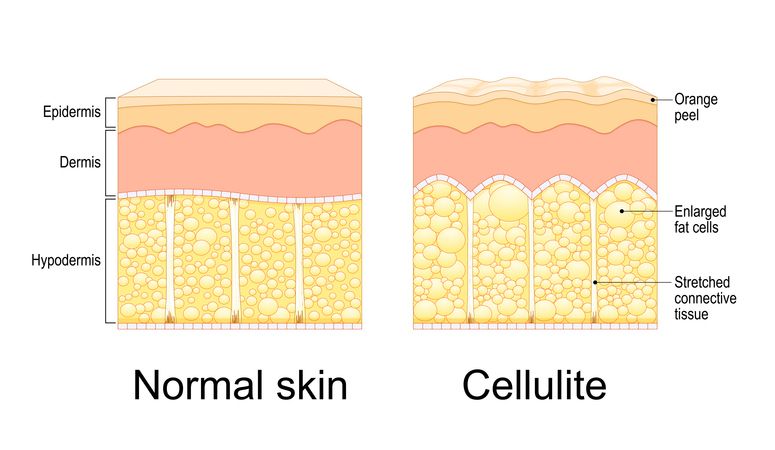Author: Natalie Ng|Updated: 6 May 2025
Acne doesn’t always need strong treatments to get better. You can often reduce acne by making a few simple changes to your daily routine. Things like getting enough sleep, drinking more water, and eating foods that support your skin — like those high in zinc and omega-3s — can make a real difference. Choosing gentle skin care products that won’t clog pores is just as important, especially if you have sensitive skin or acne prone skin. Natural ingredients such as tea tree oil and honey have antibacterial properties that can help clear acne without causing dry skin or irritation. If your skin is breaking out more around your menstrual cycle or you're dealing with hormonal acne, these small changes might help keep things under control. And if you're dealing with existing acne or want to prevent acne scars, skipping the harsh stuff can actually work better long term. Keep reading to learn how these small, everyday choices can help treat acne, prevent acne flare ups, and make your skin clearer — without making acne worse or irritating your skin even more.

Understanding the Root Causes of Your Acne
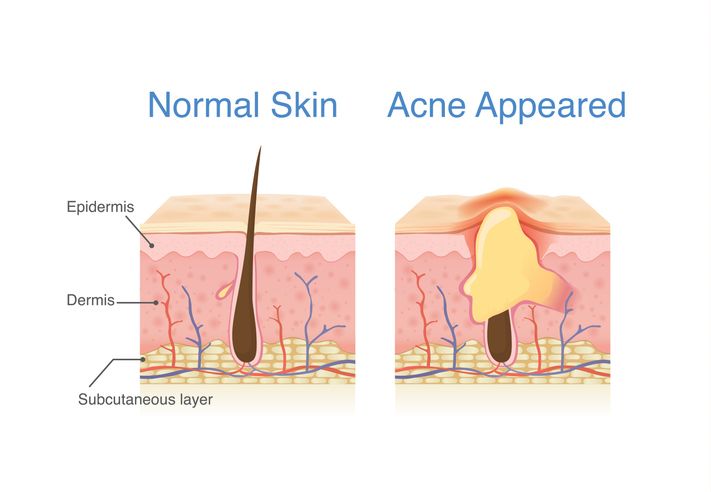
Your Skin’s Oil and Cell Cycle Can Cause Acne
Acne often starts when excess oil and dead skin cells block your hair follicles. This creates clogged pores, trapping acne causing bacteria beneath the skin’s surface. Once bacteria build up, your body reacts with inflammation, which leads to breakouts. This includes blackheads, whiteheads, and sometimes more serious types like cystic acne or nodulocystic acne.
Hormones Can Trigger Acne at Any Age
Hormonal changes increase oil production, especially during puberty or your menstrual cycle. This spike in oil can lead to hormonal acne, which often shows up on the chin, jawline, or cheeks. Adult acne is also common, and it often ties back to the same kind of hormonal activity.
Related Factors:
• Certain hormones can overstimulate oil glands
• Hormone therapy or birth control changes may affect your skin
• Breakouts may get worse around ovulation or just before your period
External Triggers Make Acne Worse
Daily habits and environment can worsen acne. Using the wrong products on acne prone skin, sleeping on dirty pillowcases, or skipping face washing can all trigger acne. If you don’t wash your face twice a day with a gentle cleanser, oil, sweat, and dirt can stay trapped on your skin.
Even oily hair rubbing against your face or popping pimples can spread bacteria and make existing acne worse.
Internal Health Matters Too
Your skin reflects your internal health more than you might think.
Watch For:
• Low intake of zinc or omega-3s
• Stress, which increases inflammation
• Gut health issues that affect skin balance
• Vitamin deficiencies that slow healthy skin cell turnover
If acne persists, these internal issues could be a major reason. Spotting what causes acne in your body can help you treat existing acne more effectively and prevent acne from returning.

Clean Eating for Clearer Skin
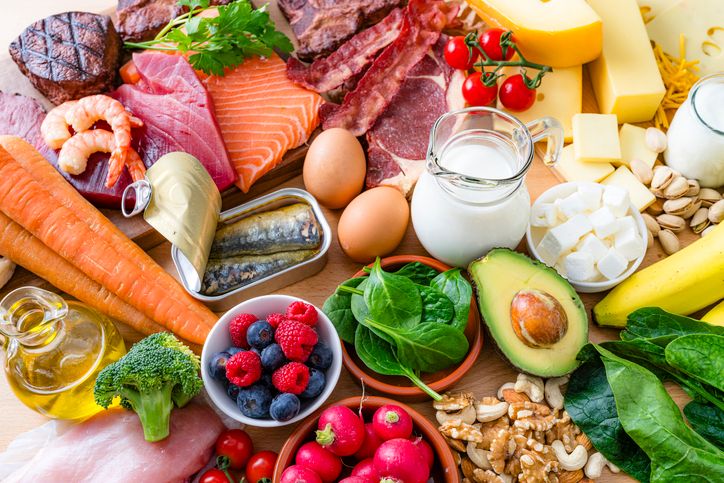
How Your Diet Affects Acne
What you eat can directly affect acne formation. Certain foods increase oil production and inflammation, which can trigger acne or make existing acne worse. Others help prevent acne by supporting hormone balance and skin repair. If acne persists despite good skincare habits, it’s worth looking at your diet.
Eating meals high in sugar or dairy may lead to acne flare ups, especially for people with acne prone skin. These foods can influence certain hormones that stimulate the sebaceous glands and cause clogged pores. On the other hand, foods rich in anti-inflammatory nutrients may help treat existing acne and prevent acne scars from forming.
Nutrients That Help Prevent Acne
1. Zinc
Zinc supports skin healing and reduces inflammation. It also helps regulate the activity of oil glands. Low zinc levels have been linked to more acne, including moderate acne and stubborn acne. You can find zinc in pumpkin seeds, chickpeas, lentils, and nuts.
2. Omega-3 Fatty Acids
Omega-3s help reduce inflammation that leads to acne formation. These fats support hormone regulation and strengthen your skin barrier. Good sources include fatty fish like salmon, walnuts, chia seeds, and flaxseeds.
3. Antioxidants
Antioxidants protect your skin from free radicals that damage skin cells and trigger acne. Foods like berries, green tea, and leafy greens contain antioxidants that may also help reduce redness and skin discoloration caused by post inflammatory hyperpigmentation.
4. Probiotics
Probiotic-rich foods like yogurt, kefir, and kimchi help balance gut bacteria. This can reduce inflammation and improve how your body responds to acne causing bacteria on the skin’s surface.
Foods to Eat Regularly
| Food | Why It Helps |
|---|---|
| Fatty Fish | Omega-3s reduce inflammation and regulate hormones |
| Leafy Greens | Support skin repair with vitamins A, C, and E |
| Berries | Fight acne with antioxidants and vitamin C |
| Pumpkin Seeds | Rich in zinc to reduce oil production |
| Green Tea | Contains polyphenols that soothe skin irritation |
| Kefir & Kimchi | Help manage breakouts by improving gut health |
Eating these foods consistently may help reduce acne without relying on harsh acne medications or over the counter treatments. Diet alone may not clear acne completely, especially if you have severe acne or hormonal acne, but clean eating supports every other acne treatment approach.
Book Now to Experience
Acne Treatment
1 Minute Self-Registration
Date should not be before minimal date

Natural Ingredients That Combat Breakouts
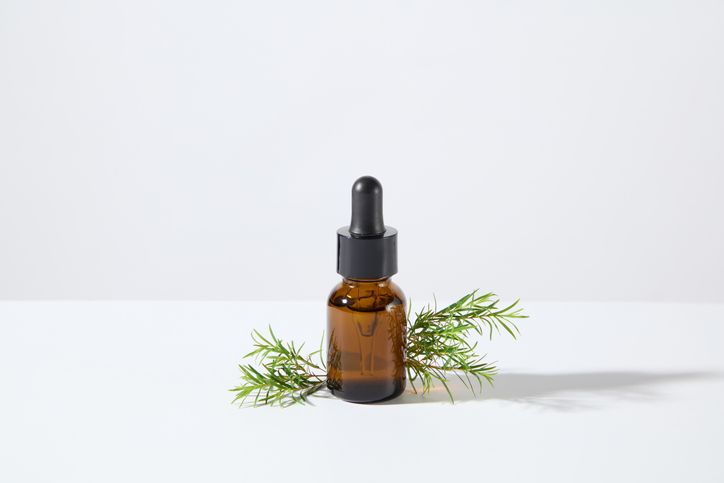
Why Natural Ingredients Matter
Many people use over the counter products with active ingredients like benzoyl peroxide or salicylic acid to treat acne. While these can be effective, they may also irritate your skin, especially if you have sensitive skin or dry skin. Natural alternatives can reduce acne and unclog pores without triggering side effects like redness, tightness, or skin peeling.
Natural treatments also help prevent acne scars by calming inflammation and keeping your skin barrier intact. They don’t rely on synthetic ingredients that might worsen acne or lead to skin irritation. Some natural options even match the antibacterial properties of common topical medications without damaging healthy skin cells.
Key Natural Ingredients and Their Benefits
| Ingredient | What It Does |
|---|---|
| Tea Tree Oil | Kills acne causing bacteria and reduces inflammation similar to benzoyl peroxide |
| Honey | Fights bacteria, hydrates skin, and supports healing |
| Green Tea | Soothes irritated skin and protects against environmental damage |
Tea Tree Oil
Tea tree oil has strong antibacterial and anti-inflammatory effects. It works well against acne causing bacteria without the harshness of topical antibiotics or benzoyl peroxide. Use it diluted with a carrier oil or in a gentle cleanser to avoid irritation.
Honey
Raw honey has antimicrobial properties that help clear acne while keeping skin hydrated. It’s especially helpful for sensitive skin because it doesn’t strip natural oils. It also speeds up healing and may reduce the risk of skin discoloration or acne scars.
Green Tea
Green tea can be used both topically and internally. On the skin, it helps reduce redness, calm inflammation, and neutralize free radicals that damage your skin’s surface. Drinking green tea also supports your skin from within by reducing inflammation and helping to regulate certain hormones that trigger acne.
These ingredients are safe for daily use, even if your acne is caused by hormonal changes or inflammation around the hair follicles. They’re also gentle enough to use alongside other treatment options, including over the counter treatments for acne vulgaris or mild chemical peels.

Building a Gentle Daily Skincare Routine
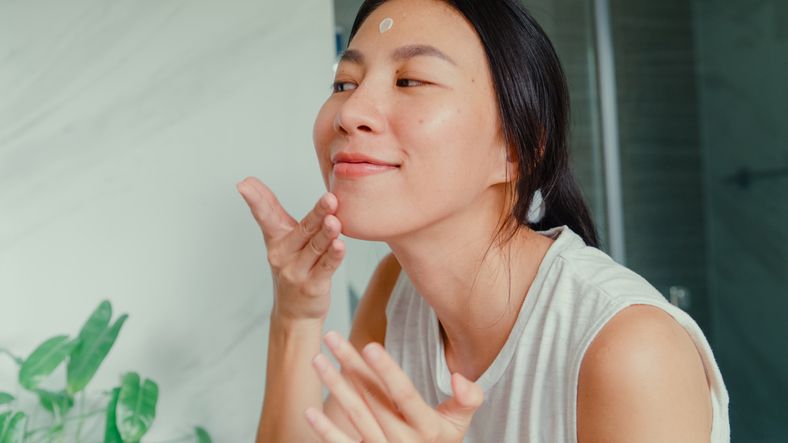
Why Simplicity Works Best for Acne Prone Skin
Acne treatment doesn’t need to include dozens of products. In fact, using too many harsh or layered products can irritate your skin, strip away natural oils, and trigger acne flare ups. A basic, consistent routine is more effective — especially if you have sensitive skin or acne prone skin.
Keeping things simple helps your skin repair itself, prevents clogged pores, and reduces the risk of skin irritation. The goal is to treat existing acne gently and prevent more acne from forming.
Your Daily Routine Should Include These Steps
1. Gently Wash Your Face Twice a Day
Use a mild soap or gentle cleanser that’s non-comedogenic and free of fragrances or alcohol. This helps clear excess oil, remove dead skin cells, and unclog pores without drying your skin. Wash your face in the morning and before bed, and always after sweating.
Avoid using rough scrubs or brushes, which can damage the skin’s surface and make acne worse.
2. Moisturize With a Lightweight, Oil-Free Product
Even oily or acne prone skin needs moisture. Skipping moisturizer can lead to dry skin, which makes your body produce even more oil. This extra oil can cause acne or worsen existing acne.
Choose a non-comedogenic, oil-free moisturizer and apply it while your skin is still slightly damp after cleansing. This locks in hydration and keeps your skin balanced.
3. Protect Your Skin With Sunscreen
Use a broad-spectrum sunscreen daily — even if it’s cloudy. Sun exposure can make acne scars more noticeable and worsen skin discoloration. It can also cause inflammation, which makes stubborn acne harder to treat.
Look for sunscreens made for sensitive or acne prone skin, preferably with zinc oxide or titanium dioxide.
What to Avoid in Your Routine
• Don’t pop pimples — this can cause scarring and spread acne causing bacteria.
• Avoid products with strong alcohols, artificial fragrance, or rough exfoliants.
• Don’t layer too many active ingredients like salicylic acid, glycolic acid, or benzoyl peroxide — overuse can irritate your skin.
A gentle routine gives your skin time to heal. If acne persists or becomes severe acne, speak with a board certified dermatologist to discuss acne treatments or topical antibiotics that won’t irritate your skin.
Book Now to Experience
Acne Treatment
1 Minute Self-Registration
Date should not be before minimal date

Lifestyle Changes That Promote Skin Health
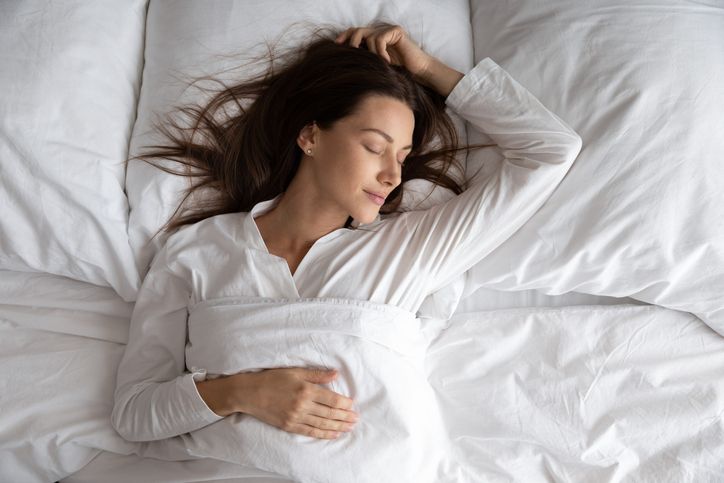
Daily Habits Influence Acne More Than You Think
Even the best skincare routine won’t work if your daily habits trigger acne. Lifestyle choices affect hormone levels, oil production, inflammation, and how fast dead skin cells shed from your skin’s surface. If these habits aren’t supporting your skin, acne may keep coming back — even with treatment.
By making small changes to how you sleep, eat, move, and manage stress, you can reduce acne and improve how your skin heals.
1. Sleep 7–9 Hours to Support Skin Repair
While you sleep, your body works to repair damaged skin cells and regulate hormones. Poor sleep increases stress hormones like cortisol, which can cause acne or worsen existing acne. Aim for at least 7–9 hours each night. Inconsistent sleep patterns can also make hormonal acne worse, especially around your menstrual cycle.
2. Change Pillowcases Twice a Week
Pillowcases collect oil, sweat, and acne causing bacteria. If you have acne prone skin, this buildup can trigger acne or spread existing acne. Wash or change your pillowcases at least twice a week using fragrance-free detergent. This small habit helps prevent clogged pores and skin irritation.
3. Watch Your Diet — It Matters
Diets high in dairy and refined sugars may trigger acne flare ups. These foods can increase insulin levels and certain hormones that stimulate oil glands. Reducing dairy and sugar may help prevent acne. Instead, eat more antioxidant-rich fruits, leafy greens, and omega-3-rich foods, which support skin health from within.
4. Stay Hydrated Throughout the Day
Dehydration can lead to dry skin, which may prompt your body to produce more oil — increasing the risk of clogged pores and acne formation. Drink water regularly and add skin-friendly options like green tea or coconut water. These help flush out toxins and provide antioxidants that protect your skin.
5. Exercise Regularly and Shower After
Exercise increases blood flow and helps regulate hormones, both of which support clearer skin. But sweat and oil left on the skin can lead to breakouts if not washed off. Always shower soon after working out to avoid plugged pores, especially if you wear tight clothing or gear.
6. Avoid Touching Your Face
Your hands carry dirt, oil, and bacteria. Touching your face during the day — especially around breakouts — can make acne worse. This habit also spreads acne causing bacteria and may lead to skin irritation or infection.
These small daily shifts won’t replace acne medications for severe acne, but they help treat existing acne, prevent acne flare ups, and reduce the risk of long-term skin damage. If lifestyle changes and a gentle routine don’t clear acne, speak with a board certified dermatologist about treatment options, such as topical medications, hormone therapy, or over the counter treatments.

Stress Management for Acne Prevention
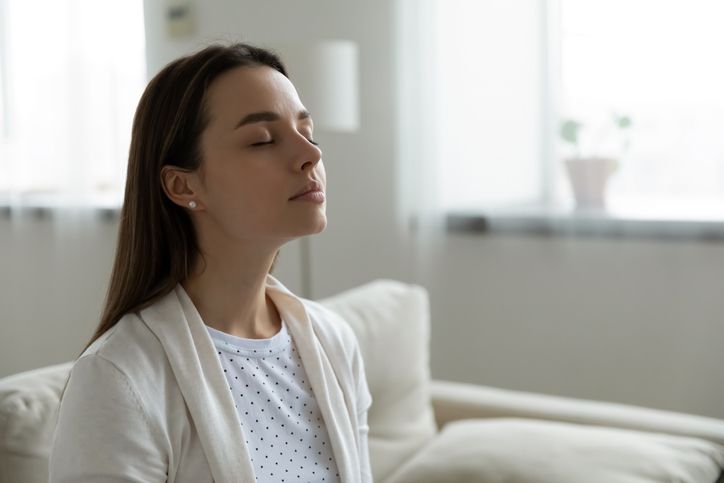
How Stress Affects Your Skin
Stress increases hormones like cortisol, which tells your oil glands to produce more sebum. This excess oil can clog pores and feed acne causing bacteria. If you have acne prone skin, stress can easily trigger acne flare ups or make existing acne worse — especially if the stress is constant or paired with poor sleep or diet.
Managing stress is not just about feeling better — it directly helps reduce acne and supports your skin’s natural healing cycle.
Simple Ways to Lower Stress and Reduce Acne
1. Practice Deep Breathing Every Day
Spend 5 to 10 minutes each day focusing on your breath. Slow, deep breathing lowers cortisol and calms your nervous system. This can reduce oil production and skin irritation linked to emotional stress. You don’t need any tools — just sit still, breathe in through your nose, and out through your mouth at a slow, steady pace.
2. Move Your Body to Release Tension
Physical activity helps lower stress and supports clearer skin by improving blood flow and hormone balance. You don’t need intense workouts — walking, yoga, dancing, or stretching at home can all help. Moving regularly also helps regulate hormones that cause acne, including those that spike around the menstrual cycle.
3. Set Boundaries to Protect Your Mental Space
Overworking or staying plugged into social media all day increases stress, especially if it disrupts your sleep or affects your eating habits. Set limits on screen time, take short breaks during the day, and protect your personal time in the evening. These small changes help you stay mentally balanced — and that helps your skin stay balanced too.
If acne persists even with stress reduction and a healthy routine, it may be time to discuss acne treatments with a board certified dermatologist. They can guide you through treatment options that won’t irritate your skin or worsen acne scars.
Book Now to Experience
Acne Treatment
1 Minute Self-Registration
Date should not be before minimal date

The Power of Proper Hydration
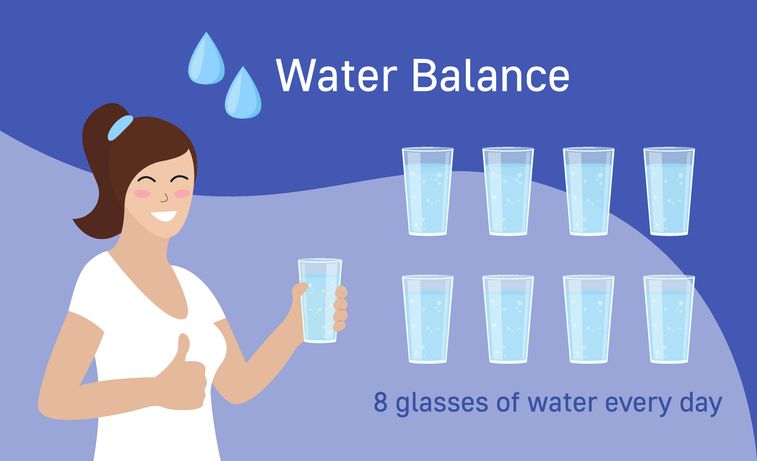
Why Water Matters for Clear Skin
Your skin needs moisture to function properly. When you’re dehydrated, your body may respond by producing more oil, which can lead to clogged pores and acne flare ups. Staying hydrated helps prevent dry skin, supports natural skin cell turnover, and helps flush out toxins that may worsen acne.
Hydration also plays a role in regulating the skin barrier. A strong barrier helps protect against acne causing bacteria and keeps skin balanced — especially important for people with acne prone skin or sensitive skin.
How to Stay Hydrated and Help Your Skin
1. Drink at Least 8 Glasses of Water a Day
Aim for about two liters of water daily to support healthy skin. If you’re active, drink more to replace what you lose through sweat. Consistent water intake helps treat existing acne by improving how your body removes waste and balances oil levels on your skin’s surface.
2. Choose Skin-Friendly Hydration Options
Green tea is packed with antioxidants that fight inflammation and support skin healing. Coconut water provides electrolytes that help your body stay hydrated longer. These drinks support clearer skin without adding sugar or irritating ingredients.
Avoid sugary sodas, alcohol, or excess caffeine — these can dehydrate you and may trigger acne or worsen acne scars over time.
3. Add Flavor Naturally
If plain water feels boring, infuse it with lemon, cucumber, mint, or berries. These add light flavor without sugar and may offer additional antioxidant benefits for your skin.
4. Lock In Moisture After Cleansing
Drinking water is only half the equation. Use a lightweight, non-comedogenic moisturizer to seal in hydration after you wash your face. This prevents your skin from drying out and helps avoid overproduction of oil that could lead to more acne.
Hydration supports every step in your acne treatment plan — from regulating oil to reducing irritation. It also improves how your skin responds to other ingredients like salicylic acid, benzoyl peroxide, or azelaic acid by keeping your skin barrier strong and calm.

Essential Supplements for Skin Recovery
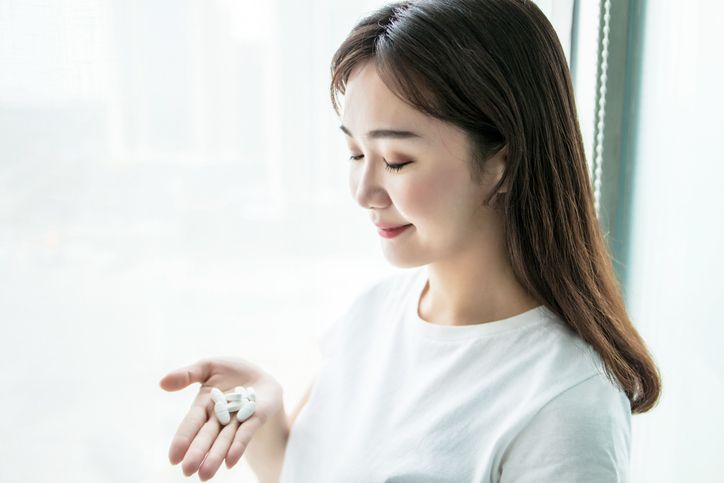
Why Supplements Help When Acne Persists
If your diet is lacking certain nutrients, your skin may struggle to heal or regulate oil properly. Even with a solid routine and clean eating, your body might still need extra support. Supplements can help treat acne, reduce inflammation, and strengthen your skin’s ability to recover — especially if you’re dealing with hormonal acne, moderate acne, or stubborn acne that doesn’t fully respond to over the counter products.
Taking the right supplements can also help prevent acne scars by improving skin healing and reducing long-term inflammation.
Key Supplements That Support Clearer Skin
1. Zinc Supports Healing and Oil Control
Zinc helps reduce inflammation, supports immune function, and regulates oil gland activity. It also slows the growth of acne causing bacteria on the skin’s surface. People with low zinc levels often experience more acne, including cystic acne and acne vulgaris.
• Take 30–50 mg of zinc daily
• Choose forms like zinc picolinate or zinc methionine for better absorption
• Eat zinc-rich foods like pumpkin seeds, lentils, and chickpeas
Topical zinc creams may also help treat existing acne or reduce skin irritation after using acne medications.
2. Vitamin A Improves Skin Cell Turnover
Vitamin A promotes the healthy turnover of skin cells, preventing dead skin cells from building up and clogging pores. It also reduces inflammation and helps regulate oil production, both of which are key in preventing acne formation.
| Source | Vitamin A Content | Benefit |
|---|---|---|
| Sweet Potato | 19,218 IU | Speeds up cell turnover |
| Beef Liver | 16,899 IU | Supports collagen production |
| Spinach | 11,458 IU | Lowers skin inflammation |
| Carrots | 10,191 IU | Offers antioxidant support |
| Eggs | 487 IU | Helps regulate oil |
These foods are easy to include in your meals and help fight acne naturally. If taking a supplement, use caution — high doses of vitamin A can cause side effects. Speak to a board certified dermatologist before starting a high-strength version.
3. Omega-3 Fatty Acids Reduce Inflammation
Omega-3s calm the inflammatory response that drives acne flare ups. They also help regulate hormones and reduce redness and swelling around existing acne.
• Found in wild-caught salmon, walnuts, flaxseeds, and chia seeds
• Supplements like fish oil or algae oil are easy options
• Omega-3s help strengthen the skin barrier and reduce skin irritation
These healthy fats support both your immune system and your skin’s natural ability to heal, making them a smart addition to any acne treatment plan — especially if you’re also using topical medications like benzoyl peroxide or salicylic acid.

A Non-Harsh Acne Treatment That Supports Clear Skin
How This Treatment Helps Reduce Acne Naturally
If you’re looking to reduce acne without harsh treatments like strong topical medications or oral acne medications, New Beauty’s non-invasive Acne Treatment offers a gentle yet effective option. It's designed specifically for acne prone skin, including those dealing with moderate acne, acne vulgaris, or even stubborn acne that hasn’t responded well to over the counter treatments.
This treatment doesn’t rely on chemicals like benzoyl peroxide or strong acids that may irritate your skin. Instead, it works by physically removing the buildup that causes acne — dead skin cells, excess oil, and dirt inside clogged pores — without damaging your skin barrier.
How the Acne Treatment Works
The process combines cleansing, hydration, and oil control in three steps:
1. Deep Pore Cleansing With Suction Technology
Using dual spiral suction and drainage, the treatment gently exfoliates the skin's surface and unclogs pores. This step helps treat existing acne while preventing more acne by removing dead skin cells and excess oil. It also reduces the chance of acne flare ups caused by blocked hair follicles.
2. Hydration and Oil Balance
Once the pores are clear, a medical-grade hydrating serum is infused into the skin. This step helps calm overactive sebaceous glands and reduce future oil production, which is key in preventing acne formation. The hydration also soothes sensitive skin and reduces inflammation, improving both acne and skin texture.
3. Collagen Support for Healing
The final stage encourages collagen production, which may help repair damaged areas and prevent acne scars or post inflammatory hyperpigmentation from forming. This also improves skin tone and supports long-term recovery.
Key Advantages of the Treatment
• Non-invasive — no needles, incisions, or downtime required
• Safe for sensitive skin and acne prone skin
• Helps treat existing acne, blackheads, and whiteheads without irritating your skin
• Supports healing of acne scars and reduces skin discoloration
• Helps manage oily skin and reduces the chance of future breakouts
• Suitable for those with worsen acne and even severe acne who can’t tolerate harsher treatments
This treatment works well alongside a clean skincare routine and balanced diet. It enhances your efforts to prevent acne and treat acne naturally, without triggering more acne or causing additional irritation.
Ready for Clearer Skin Without the Harsh Side Effects?
If you’ve tried over the counter products or topical medications and still struggle with breakouts, this gentle acne treatment may be the next step. Book the Acne Treatment to find out if it’s right for your skin.
New Beauty's Acne TreatmentBook Now to Experience
Acne Treatment
1 Minute Self-Registration
Date should not be before minimal date
FAQ
Can Birth Control Pills Help Reduce Hormonal Acne Breakouts?
You'll find that birth control pills can effectively reduce hormonal acne by regulating your body's androgen levels. When you take these pills, they'll help balance your hormones and decrease oil production in your skin. You're free to discuss specific options with your healthcare provider, who can recommend the right pill formulation for your needs.
How Long Should I Wait to See Results From Natural Acne Treatments?
You'll typically need to give natural acne treatments 6-8 weeks to see significant results. While you might notice small improvements within 2-3 weeks, your skin needs time to complete its natural renewal cycle. Don't get discouraged if you don't see immediate changes - consistency is key. Track your progress with photos, and remember that healing your skin naturally means working with your body's own timeline.
Does Washing My Pillowcase Frequently Help Prevent Acne Breakouts?
Changing your pillowcase frequently is a game-changer for preventing breakouts. Your pillowcase collects dead skin cells, oils, and bacteria night after night. When you sleep, these impurities transfer back onto your face, clogging pores and triggering acne. Switch to a fresh pillowcase every 2-3 days to free your skin from this cycle of contamination.
Can Certain Medications Make My Acne Worse?
Yes, several medications can trigger or worsen your acne. Birth control pills, corticosteroids, and lithium are common culprits. If you're taking any prescription drugs and notice increased breakouts, don't stop taking them without consulting your doctor first. You've got options - your healthcare provider can help adjust your dosage or switch you to an alternative medication that won't affect your skin as much.
Should I Avoid Wearing Makeup Completely While Treating Acne?
You don't need to completely avoid makeup while treating acne - it's about making smarter choices. Choose non-comedogenic products that won't clog your pores, and always remove your makeup before bed. Consider mineral-based foundations and natural concealers that let your skin breathe. Just be sure to clean your makeup brushes weekly to prevent bacterial buildup.
Recommended Articles
COPYRIGHT© NEW BEAUTY MANAGEMENT LIMITED 2026. ALL RIGHT RESERVED.

